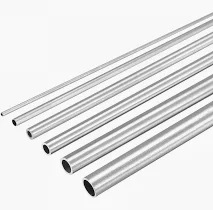
Precision Mechanical Components The Backbone of Modern Engineering
In the realm of engineering and manufacturing, precision mechanical components are essential to the functionality and reliability of various machinery and systems. These components, characterized by their meticulous design and exact specifications, play a critical role across multiple industries, including aerospace, automotive, medical, and robotics.
Precision mechanical components encompass a wide array of parts, including gears, shafts, bearings, and screws, all designed to fit together seamlessly and operate with minimal tolerance. The significance of precision in these components cannot be overstated. In many applications, even the slightest deviation from the required specifications can lead to system failures, reduced efficiency, or safety hazards. Therefore, achieving high precision in mechanical components is a fundamental goal for engineers and manufacturers alike.
Advancements in technology have revolutionized the production of precision mechanical components. Modern manufacturing techniques, such as computer numerical control (CNC) machining, additive manufacturing, and laser cutting, allow for extraordinary accuracy and repeatability in producing these components. CNC machining, in particular, enables the fabrication of intricate designs with tolerances as tight as a few microns, ensuring that the components not only fit perfectly but also perform exceptionally under demanding conditions.

Moreover, the materials used in precision mechanical components have evolved significantly over the years. Engineers now have access to a range of high-performance materials, including lightweight composites, advanced alloys, and specialized plastics, each offering unique properties beneficial for specific applications. For instance, aerospace components often require materials that can withstand extreme temperatures and pressures, while medical devices must be made from biocompatible materials to ensure patient safety.
Quality control is another critical aspect of ensuring the performance and durability of precision mechanical components. Manufacturers employ rigorous testing and inspection processes, utilizing tools such as coordinate measuring machines (CMMs) and optical comparators to verify that each component meets the stringent standards set by industry regulations. This commitment to quality not only enhances the reliability of the components but also fosters trust between manufacturers and their clients.
Furthermore, precision mechanical components are increasingly being integrated into smart technologies and automation systems. With the rise of the Internet of Things (IoT) and Industry 4.0, manufacturers are leveraging data analytics and machine learning to optimize production processes and predict maintenance needs, thereby increasing efficiency and reducing downtime.
In conclusion, precision mechanical components are the unsung heroes of modern engineering. Their role in facilitating the smooth operation of complex machinery cannot be overlooked. As technology continues to advance, the demand for these components will only increase, driving innovation in manufacturing processes, materials, and quality assurance practices. The future of precision engineering is bright, with endless possibilities to enhance performance, reliability, and efficiency across various sectors. Investing in precision mechanical components stands as a testament to a commitment to excellence, which is crucial for any business poised for success in today's competitive landscape.